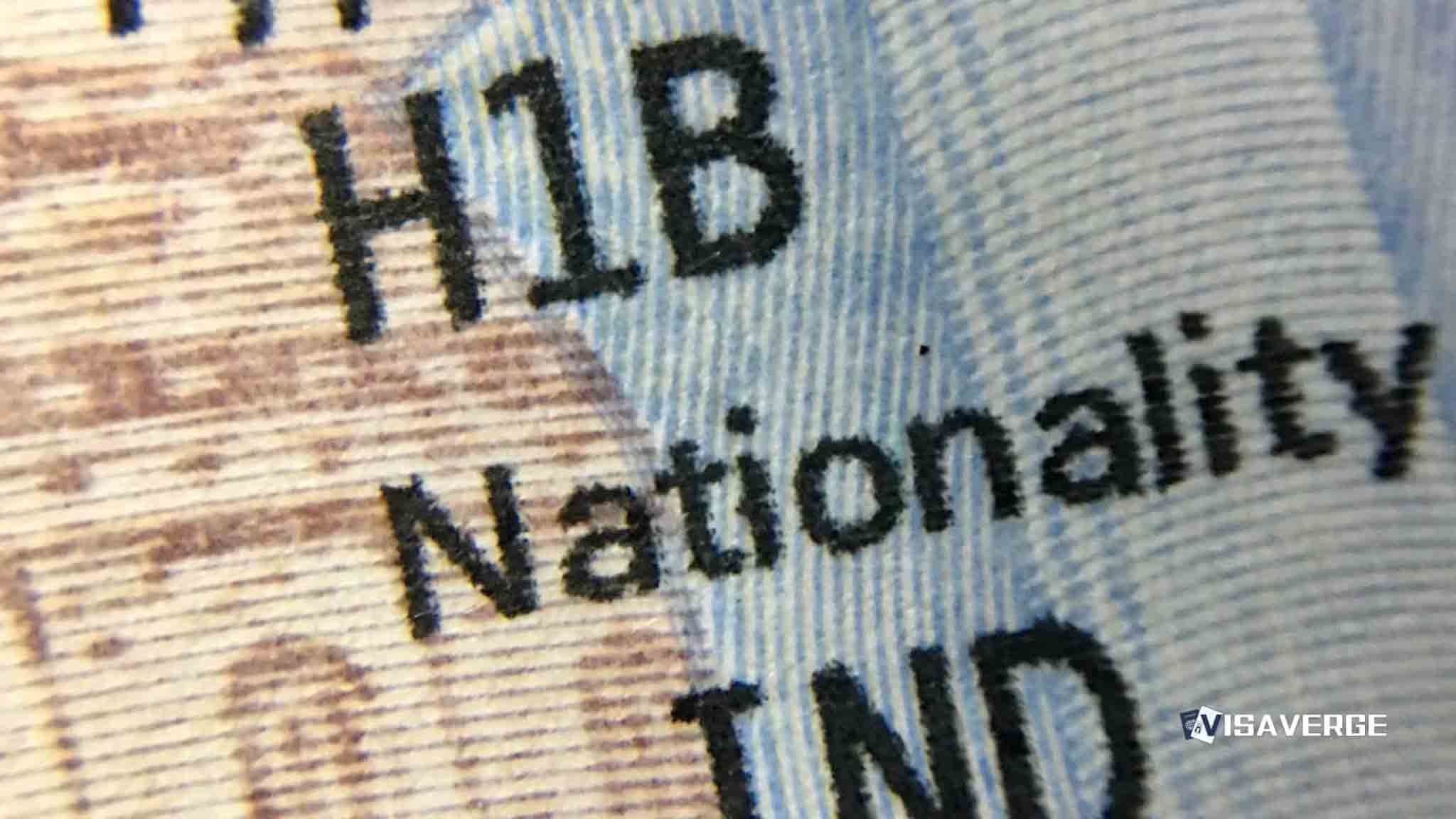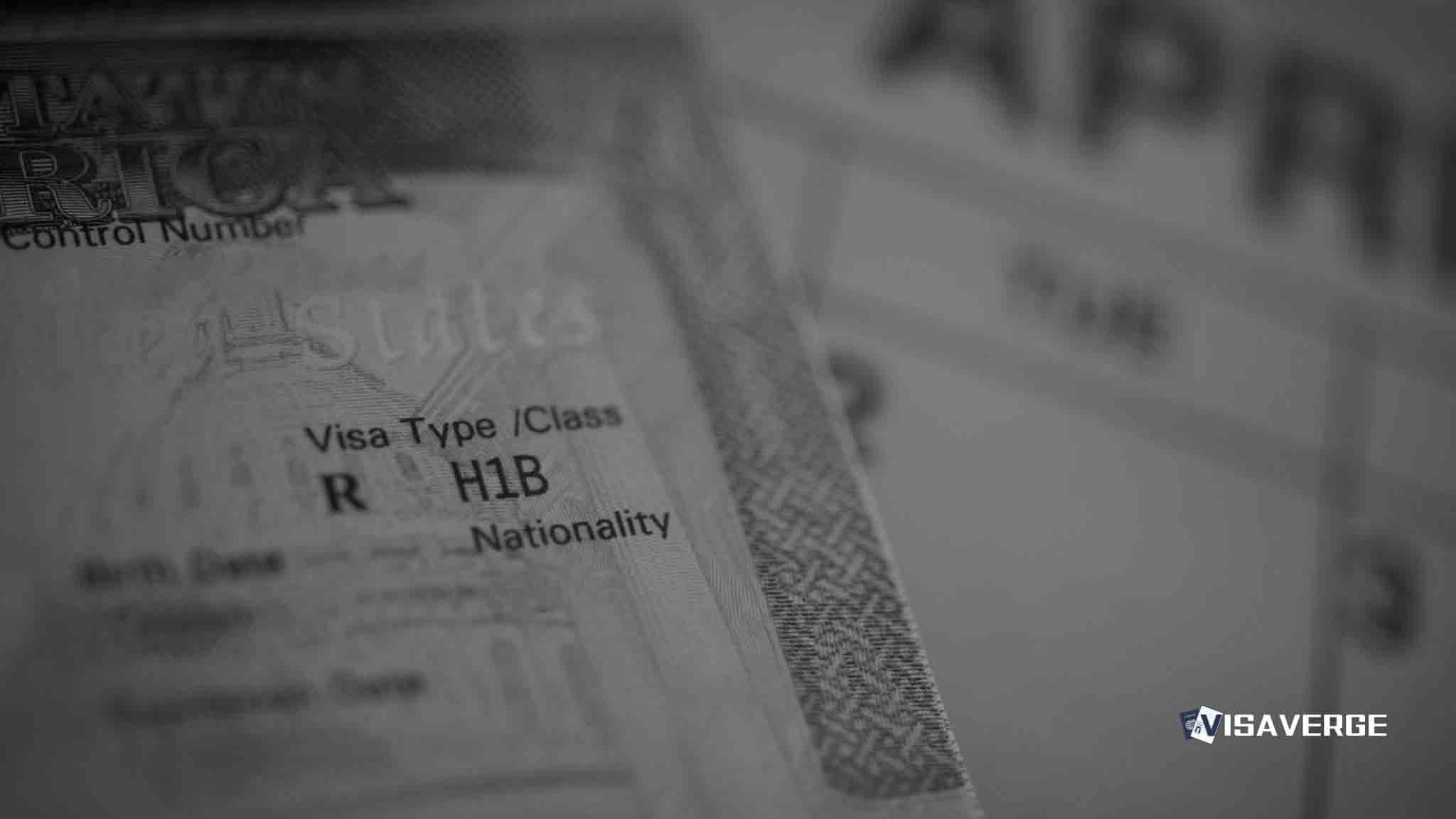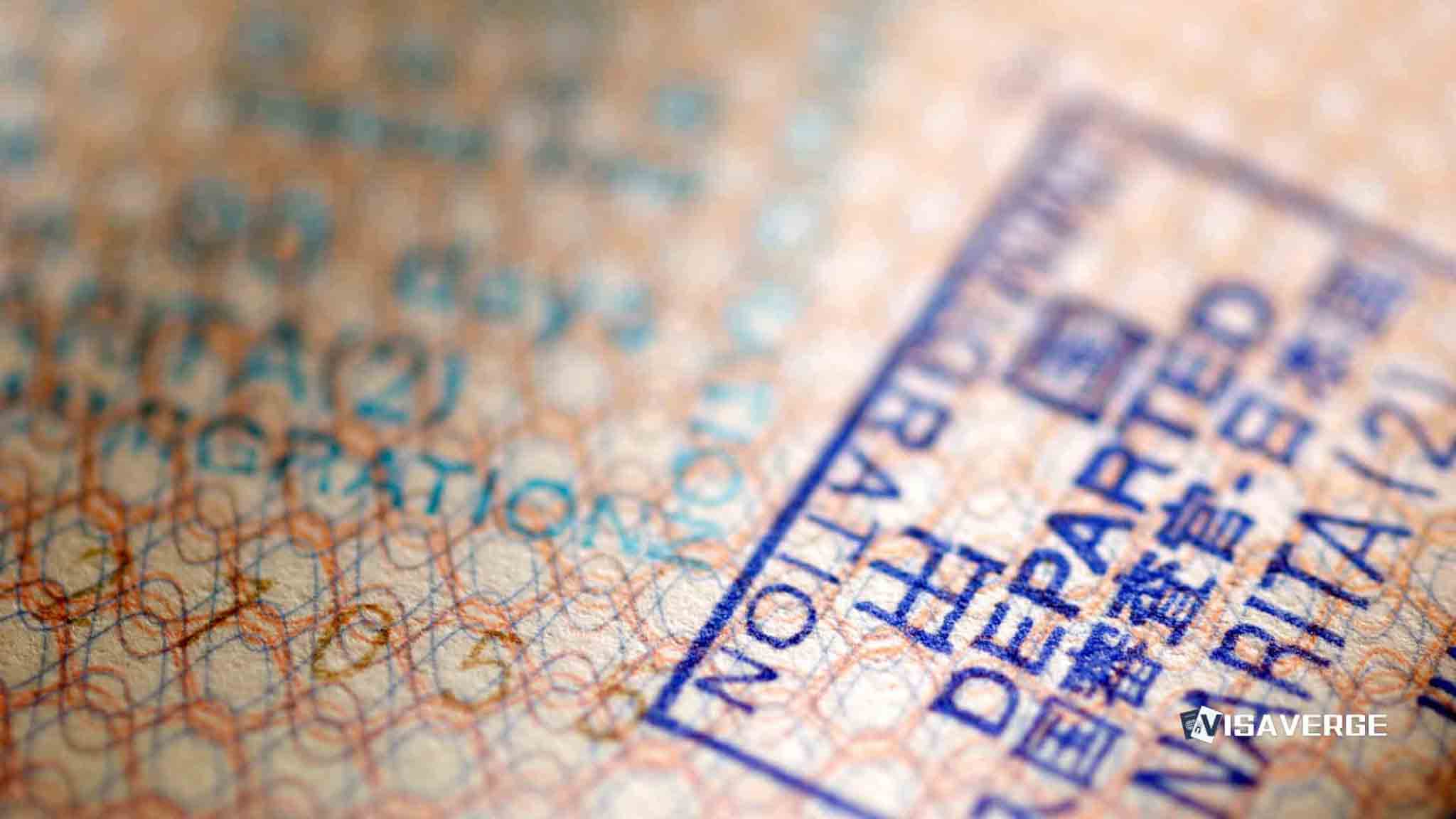Quick Glance:
- H-1B regulations are primarily federal, but job prospects, support systems, and quality of life vary across states.
- Prevailing wages for H-1B workers differ by state, reflecting local economic conditions.
- Information availability, state programs, and taxation can vary, affecting H-1B holders differently across states. Understanding H-1B Visa Regulations Across Different U.S. States
Navigating the complexities of immigration can be daunting, especially when dealing with work visas like the H-1B. Often sought after by those wishing to work in the United States, the H-1B visa program allows employers to temporarily employ foreign workers in specialty occupations. If you’re looking to understand how H-1B visa regulations might vary from one U.S. state to another, this informative post is tailored for you.
What is the H-1B Visa?
Before we delve into state specifics, it’s crucial to grasp what an H-1B visa is. This visa category is designed for foreign workers in specialty occupations that require theoretical or technical expertise in fields such as IT, finance, engineering, and medicine. The essence of the H-1B program is not only to help U.S. companies find highly skilled talent but to provide opportunities for foreign workers to contribute to the American economy.
Federal Oversight with State Nuances
It’s important to note that the H-1B visa program is federally regulated under the Immigration and Nationality Act, with oversight from the United States Citizenship and Immigration Services (USCIS). This means that the main rules and requirements for obtaining an H-1B visa are consistent across the country. However, the implication of H-1B on local job markets and the nuances in state sponsorships and incentives can vary, creating a spectrum of different landscapes for H-1B workers and employers.
Let’s explore how these regulations may differ depending on where in the U.S. you are:
Employment Opportunities and Industry Focus

While the fundamental criteria for obtaining an H-1B visa are uniform, differences emerge in terms of employment opportunities, which are influenced by the primary industries of each state. For instance, California, known for its booming tech industry in Silicon Valley, is a mecca for tech-focused H-1B workers. Conversely, states like Texas or New York, with diverse economies, offer H-1B opportunities in a range of sectors from energy to finance.
Wage Requirements
Minimum wage requirements for H-1B employees can differ by state, owing to variations in prevailing wages. These are determined by the job role, qualification requirements, and location. Even if the federal government sets the prevailing wage standards, actual wages can reflect the cost of living in a given state or even within different regions of a state.
Public Accessibility of H-1B Data
Some states may offer more public data on H-1B visa holders and sponsoring employers than others. This transparency can impact both job searchers and policymakers who are assessing the effects of the H-1B program on the local job market and economy.
Support Services
The level of support and resources provided to H-1B visa holders may also differ by state. Certain areas may have robust communities and support networks for foreign workers, which could include legal assistance, career counseling, and cultural integration programs.
Taxation and Cost of Living
H-1B workers, like anyone else residing in the U.S., must consider state tax policies and cost of living. While these aren’t direct H-1B visa regulations, they are crucial considerations because they affect net income and quality of life. States like Washington and Texas have no state income tax, which can be beneficial to H-1B workers’ finances, contrasting with high-tax states like California or New York.
State-Specific Policies and Programs
A few states may introduce additional policies or programs concerning H-1B visas aimed at attracting or retaining foreign talent for state-specific economic development purposes. However, these programs do not alter the federal requirements for obtaining and maintaining H-1B status but may provide auxiliary benefits.
Staying Informed and Prepared
For those seeking further information, the USCIS official website is a fundamental resource for all federal regulations as they pertain to the H-1B program. It’s always advisable to consult with immigration experts or attorneys who can provide guidance pertinent to your situation, especially given the nuances from state to state.
Key Takeaways:
- H-1B regulations are primarily federal; however, localized factors influence job prospects, support systems, and quality of life.
- Prevailing wage differences may exist between states, reflecting local economic conditions.
- Information availability, additional state programs, and taxation can vary and may affect H-1B holders differently across states.
Navigating H-1B visa regulations might initially seem overwhelming, but understanding that while the main procedures and requirements remain constant across the U.S., the local economic landscape and associated elements can greatly affect your experience. As an H-1B visa holder or sponsor, knowing the interplay between federal rules and state characteristics can empower you to make informed decisions on your work and life in the United States.
So there you have it, folks! Navigating the wild world of H-1B visa regulations across different U.S. states can be quite the adventure. From the booming tech scene in California to the diverse opportunities in Texas and New York, there’s a lot to consider. Want to dive deeper into this topic? Head on over to visaverge.com for more fascinating insights and helpful tips. Happy exploring!
FAQ’s to know:
FAQ 1: What is the H-1B visa?
Answer: The H-1B visa is a work visa category designed for foreign workers in specialty occupations that require theoretical or technical expertise. It allows U.S. employers to temporarily employ foreign workers in fields such as IT, finance, engineering, and medicine, bringing highly skilled talent to benefit the American economy.
FAQ 2: How do H-1B visa regulations vary across different U.S. states?
Answer: While the main rules and requirements for obtaining an H-1B visa are consistent nationwide, there can be differences in employment opportunities, prevailing wage requirements, public accessibility of H-1B data, support services, taxation, and state-specific policies. These state nuances can impact job prospects, cost of living, and access to resources for H-1B visa holders and employers.
FAQ 3: Where can I find more information about H-1B visa regulations?
Answer: For comprehensive information on the federal regulations pertaining to the H-1B visa program, visit the official website of the United States Citizenship and Immigration Services (USCIS) at uscis.gov. It’s also advisable to consult with immigration experts or attorneys who can provide guidance specific to your situation and help navigate the complexities of H-1B visa regulations, including any state-specific considerations.
What did you learn? Answer below to know:
- True or False: The H-1B visa program is regulated by individual states within the United States.
- Which state is known for its booming tech industry and attracts many H-1B workers in the IT sector? a) Texas b) New York c) California d) Washington
- What is one factor that can vary between states for H-1B employees? a) Minimum wage requirements b) Federal oversight c) Prevailing wage standards d) Immigration experts availability
Did you Know?
Did You Know?
- True or False: The H-1B visa program is regulated by individual states within the United States.
False. The H-1B visa program is a federal program regulated under the Immigration and Nationality Act, with oversight from the United States Citizenship and Immigration Services (USCIS). While there may be state-specific policies or programs aimed at attracting or retaining foreign talent, the main rules and requirements for obtaining an H-1B visa are consistent nationwide. -
Which state is known for its booming tech industry and attracts many H-1B workers in the IT sector?
c) California. California, specifically Silicon Valley, is renowned for its thriving tech industry and attracts numerous H-1B workers in the IT sector. Companies like Google, Apple, and Facebook have their headquarters in California, making it a prime destination for tech-focused H-1B workers. -
What is one factor that can vary between states for H-1B employees?
a) Minimum wage requirements. While the federal government sets the prevailing wage standards for H-1B employees, the actual wages can differ by state due to variations in prevailing wages. The prevailing wages are determined based on factors such as job role, qualification requirements, and location. Therefore, the cost of living in a particular state or region can impact the minimum wage requirement for H-1B workers in that area.
Learn Today: Key Terms Explained
Glossary or Definitions:
-
H-1B Visa: A work visa category designed for foreign workers in specialty occupations that require theoretical or technical expertise. It allows U.S. employers to temporarily employ foreign workers in fields such as IT, finance, engineering, and medicine.
-
Immigration and Nationality Act: A federal law that governs immigration and citizenship in the United States.
-
United States Citizenship and Immigration Services (USCIS): The federal agency responsible for administering immigration and naturalization processes in the United States.
-
Prevailing Wage: The minimum wage that must be paid to H-1B workers in a specific occupation and location. It is determined based on job role, qualification requirements, and regional economic conditions.
-
Specialty Occupation: An occupation that requires specialized knowledge and expertise, usually obtained through a bachelor’s degree or higher. H-1B visas are granted to foreign workers in specialty occupations.
-
Local Economic Conditions: The economic factors, such as job market, industry focus, and cost of living, specific to a particular state or region.
-
State Sponsorships and Incentives: State-specific programs or initiatives aimed at attracting or retaining foreign talent for economic development purposes. These programs may provide additional benefits for H-1B visa holders but do not change the federal requirements.
-
Public Data: Information that is accessible and available to the public. In the context of H-1B visas, public data refers to information about H-1B visa holders and sponsoring employers that is publicly accessible, which can impact job searchers and policymakers assessing the program’s effects.
-
Support Services: Resources and assistance provided to H-1B visa holders, including legal assistance, career counseling, and cultural integration programs. The level of support may vary by state.
-
State Tax Policies: The laws and regulations related to state income tax. Different states have varying tax policies, which can impact the net income and quality of life for H-1B workers.
-
State-Specific Policies and Programs: Additional policies or programs introduced by specific states regarding H-1B visas, aimed at addressing state-specific economic development goals or attracting foreign talent. These programs do not change the federal requirements but may provide auxiliary benefits.
-
Immigration Experts or Attorneys: Professionals who specialize in immigration law and can provide guidance and assistance specific to individual immigration cases. Consulting with immigration experts or attorneys is advisable when navigating the complexities of H-1B visa regulations, including any state-specific considerations.








